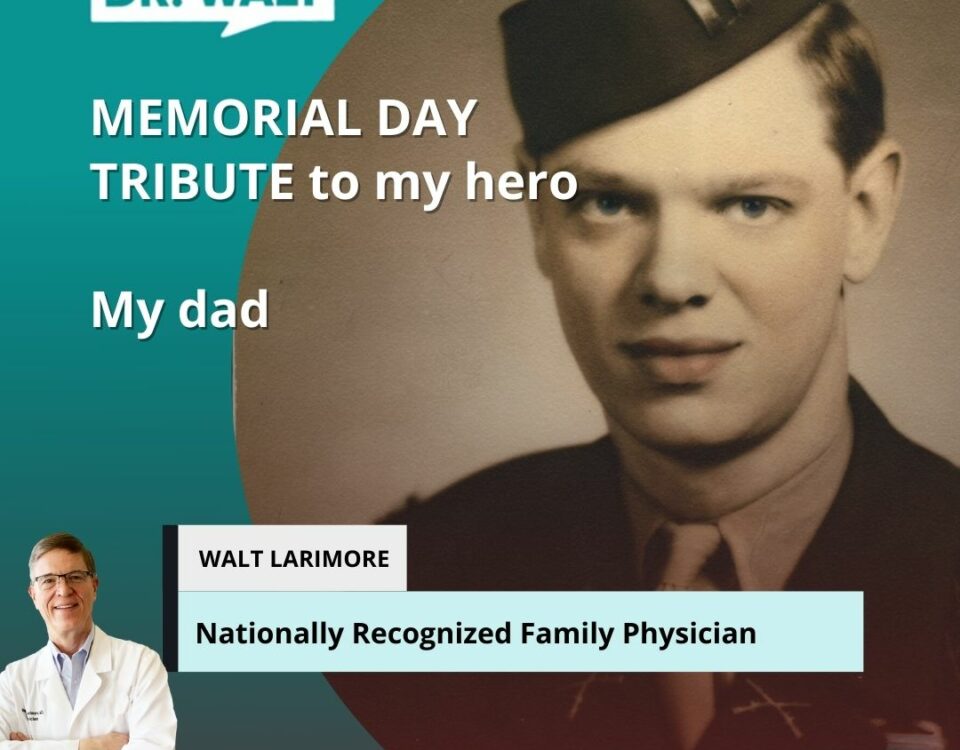
April 5, 1945 — Phil’s amazing ‘helmet trick’ ends the life of a skilled German sniper
April 5, 2025
April 6, 1945 (Part 2) — Attacking a deceptively quaint but deadly German farming village
April 6, 2025The following day, April 6, 1945, a cobalt sky couldn’t decide whether to issue sprinkles or deliver a dousing rain shower. Company L joined Company I in clearing several villages before moving out toward the east. Their goal for the day: the village of Oberthulba.[1]

That morning, they passed upturned and bombed-out enemy vehicles with dead drivers and crew scattered about, the result of sweeping strikes from P-47 Thunderbolts that strafed and bombed the German column to oblivion. Phil watched impassively as two gray-haired civilian men struggled to lift and toss the stiffening corpses onto a horse-drawn wagon.
The lieutenant studied his map, which showed pastureland bordered by thick forests on each side. Between their position and Oberthulba was a main north-south highway—Motorway 7—which could be an excellent defense point. Because of their rapid movement, Phil was concerned that their artillery was lagging and wouldn’t be available to support them in case of an attack.
He cocked his head toward the clearing heavens, where the developments were more welcoming.
Looks like we’ll be able to call in some air support if it’s needed, he thought.
He assigned his 1st Platoon to penetrate the forest to the north and his 3rd Platoon to the south. His 2nd Platoon, trailed by tanks and TDs, would stay with him and follow a single-lane road slicing through green pastureland. From his vantage point, he observed flanking riflemen working their way slowly through thick underbrush and woods. The platoons stayed in touch with him by radio but encountered no resistance.
Phil was apprehensive that they might be walking into a trap—and wished his command had given him time to send scouting patrols up front. As he surveyed forested land up ahead with his field glasses, a battalion Jeep drove up with Colonel James E. Chaney in the passenger seat. After Phil briefed the colonel, Chaney said that he didn’t share his concern about being attacked.
“Lieutenant, resistance has been light,” he said. “Intelligence doesn’t see that changing as long as we keep moving, so get your men out of the woods and onto the road. Let’s get across the motorway and into Oberthulba as quickly as possible. I’d like you to clear the town before dark. If you move your men to the road, they’ll make a hell of a lot better time.”
Phil was unsure what all the rush was about, but his job was to follow orders. “Yes, sir,” he said, immediately radioing his men with instructions to make their way back to the road and double-time it.
As the men moved out of the woods, however, an enormous eruption of small arms and machine gun fire burst out from the woods directly ahead. The GIs instinctively hit the ground and returned fire. A tsunami of bullets whistled overhead and was so concentrated that Phil couldn’t initially differentiate between friendly and enemy fire. He motioned to Fitterman and the rest of his CP staff to follow him as he moved them up and into a gully.
The road ahead curved slightly as it left the pastureland and entered a strip of forest. Phil could not see Motorway 7, but he knew that the highway was nearby. Then the enemy fire suddenly stopped. Only an occasional rifle shot could be heard. He called the platoon leaders to determine what was happening.
“Hit a thick line of Krauts,” answered one of his lieutenants. “Damnedest thing. Looks like a company made up of young boys and old men.”
“I don’t care what their ages are. We gotta take them out,” Phil said.
Yelling to one of the radiomen, he issued an order: “Call battalion. Get the A&P platoon up here pronto with as much M1 and BAR ammo as they can carry.” Next, he radioed his up-front men and found out that both platoons had taken a few casualties but were intact and ready for orders.
“Ammo’s coming up,” Phil said. “We need to advance immediately, before those bastards have time to reach the protection of Oberthulba. What about moving forward with marching fire?” he asked.
Phil had trained his men to use their M1s, BARs, and even machine guns while using marching fire. Infantrymen kept the butt of their rifles halfway between their belts and their right armpits, shooting one round every two to three steps. For machine gun units, one man carried and fired the heavy gun while another walked alongside him with the ammo belt.
“Hell, yes, we can do that,” his lieutenant answered.
“When mortar fire and tanks start firing over your heads, that’s your go signal.”
“Roger.”
On Phil’s command, the mortars began their fire, followed by powerful fusillades from the tank and TD machine guns. As their tracers lit up the air, the riflemen separated into one long skirmish line. After a minute or two of fierce covering fire, Phil gave the attack order. The men rose in unison and walked forward with an unremitting march of fire.
“Damn!” Phil exclaimed as he watched the action through his field binoculars, “What a beautiful thing.”
“You got that right,” Fitterman commented.
Together, they saw virtually no return fire as the infantrymen moved quickly up to and into the forest that had been shredded by the covering fire.
Radio reports streamed back to Phil. No casualties on the American side, but many enemy soldiers were killed or giving up. The rest were racing to Oberthulba, where they could regroup and reorganize.
“Let’s go!” Phil yelled as he jumped into a company Jeep, followed by Fitterman. In no time, they arrived at an intersection marked by the highway overpass. A massive log roadblock stopped their progress, but one of his Sherman tanks with a heavy steel blade easily pushed the barricade out of the way.
Up ahead was Oberthulba, a quaint farming village of a couple of thousand people, smack dab in the middle of Germany. Phil radioed Battalion S-3 and learned that artillery was ready to support him. A small amount of air support was also available if needed. That was the good news. The bad news was that Oberthulba was likely heavily fortified and defended.
Phil and Abe drew up a quick battle plan for a three-platoon frontal attack.
The time was four o’clock in the afternoon. Phil relayed the news to his lieutenants in the field that if the next couple of hours went well, then they would billet inside a lovely home in Oberthulba that night.
Phil knew the idea of a hot bath and a soft bed would keep his men motivated and morale high for one more day.
And war was a day-by-day proposition, wasn’t it?[2]
~~~~~
[1] Larimore, At First Light, 242.
[2] Larimore, Ibid, 242-244.
Learn more about my book about my father’s heroics and exploits at Amazon’s First Light page here. You can also read more of my WWII blogs here as well!
© Copyright WLL, INC. 2025.



